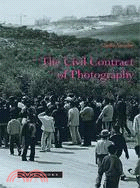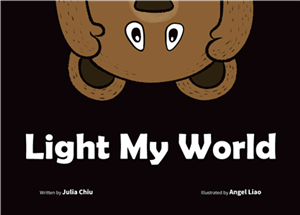Out of Order, Out of Sight, Volume 2
商品資訊
ISBN13:9781890951887
出版社:Mit Pr
作者:Ariella Azoulay
出版日:1999/02/18
裝訂/頁數:平裝/360頁
定價
:NT$ 409 元優惠價
:79 折 323 元
絕版無法訂購
商品簡介
作者簡介
商品簡介
In this groundbreaking work, Ariella Azoulay provides a compelling rethinking of the political and ethical status of photography. In her extraordinary account of the "civil contract" of photography, she thoroughly revises our understanding of the power relations that sustain and make possible photographic meanings. Photography, she insists, must be thought of and understood in its inseparability from the many catastrophes of recent history.
Azoulay argues that photography is a particular set of relations between individuals to the power that governs them, and, at the same time, a form of relations among equal individuals that constrains this power. Her book shows how anyone, even a stateless person, who addresses others through photographs or occupies the position of a photograph's addressee, is or can become a citizen in the citizenry of photography. The civil contract of photography enables him or her to share with others the claim made or addressed by the photograph.
But the crucial arguments of the book concern two groups whose vulnerability and flawed citizenship have been rendered invisible due to their state of exception: the Palestinian noncitizens of Israel and women in Western societies. What they share is an exposure to injuries of various kinds and the impossibility of photographic statements of their plight from ever becoming claims of emergency and calls for protection. Thus one of her leading questions is the following: Under what legal, political or cultural conditions does it become possible to see and to show disaster that befalls those flawed citizens in states of exception?
The book brilliantly examines key texts in the history of modern citizenship, such as the Declaration of the Rights of Man and of the Citizen, together with relevant works by Giorgio Agamben, Hannah Arendt, Olympe de Gouges, and Jean-Francois Lyotard; it rigorously analyzes Israeli photographs of violent episodes in the Occupied Territories—work by Miki Kratsman, Michal Heiman, and Aim Deuelle Luski—and it interpretively engages photographs of women from those of Muybridge to recent images from Abu Ghraib prison. At the same time Azoulay provides new critical perspectives on well-known texts such as Susan Sontag's Regarding the Pain of Others and Roland Barthes's Camera Lucida.
The Civil Contract of Photography is an essential work for anyone seeking to understand the disasters of recent history and the consequences of how these events and their victims have been represented. Azoulay charts new intellectual and political pathways in this unprecedented exploration of the visual field of catastrophe, injustice, and suffering in our time.
Azoulay argues that photography is a particular set of relations between individuals to the power that governs them, and, at the same time, a form of relations among equal individuals that constrains this power. Her book shows how anyone, even a stateless person, who addresses others through photographs or occupies the position of a photograph's addressee, is or can become a citizen in the citizenry of photography. The civil contract of photography enables him or her to share with others the claim made or addressed by the photograph.
But the crucial arguments of the book concern two groups whose vulnerability and flawed citizenship have been rendered invisible due to their state of exception: the Palestinian noncitizens of Israel and women in Western societies. What they share is an exposure to injuries of various kinds and the impossibility of photographic statements of their plight from ever becoming claims of emergency and calls for protection. Thus one of her leading questions is the following: Under what legal, political or cultural conditions does it become possible to see and to show disaster that befalls those flawed citizens in states of exception?
The book brilliantly examines key texts in the history of modern citizenship, such as the Declaration of the Rights of Man and of the Citizen, together with relevant works by Giorgio Agamben, Hannah Arendt, Olympe de Gouges, and Jean-Francois Lyotard; it rigorously analyzes Israeli photographs of violent episodes in the Occupied Territories—work by Miki Kratsman, Michal Heiman, and Aim Deuelle Luski—and it interpretively engages photographs of women from those of Muybridge to recent images from Abu Ghraib prison. At the same time Azoulay provides new critical perspectives on well-known texts such as Susan Sontag's Regarding the Pain of Others and Roland Barthes's Camera Lucida.
The Civil Contract of Photography is an essential work for anyone seeking to understand the disasters of recent history and the consequences of how these events and their victims have been represented. Azoulay charts new intellectual and political pathways in this unprecedented exploration of the visual field of catastrophe, injustice, and suffering in our time.
作者簡介
Ariella Azoulay teaches visual culture and contemporary philosophy at the Program for Culture and Interpretation, Bar Ilan University. She is the author of Once Upon A Time: Photography Following Walter Benjamin and Death's Showcase: The Power of Image in Contemporary Democracy (MIT Press, 2001).
主題書展
更多
主題書展
更多書展今日66折
您曾經瀏覽過的商品
購物須知
外文書商品之書封,為出版社提供之樣本。實際出貨商品,以出版社所提供之現有版本為主。部份書籍,因出版社供應狀況特殊,匯率將依實際狀況做調整。
無庫存之商品,在您完成訂單程序之後,將以空運的方式為你下單調貨。為了縮短等待的時間,建議您將外文書與其他商品分開下單,以獲得最快的取貨速度,平均調貨時間為1~2個月。
為了保護您的權益,「三民網路書店」提供會員七日商品鑑賞期(收到商品為起始日)。
若要辦理退貨,請在商品鑑賞期內寄回,且商品必須是全新狀態與完整包裝(商品、附件、發票、隨貨贈品等)否則恕不接受退貨。























